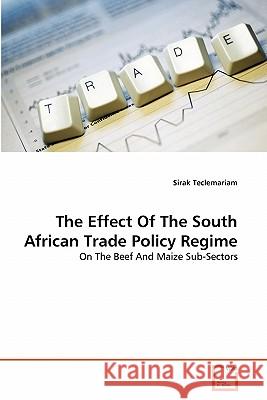The Effect Of The South African Trade Policy Regime » książka
The Effect Of The South African Trade Policy Regime
ISBN-13: 9783639302165 / Angielski / Miękka / 2010 / 112 str.
Trade policies form the main economic "buffer" between one national economy and another, i.e. the general and specific elements of each nation's trade policy interact directly or indirectly with those of other nations in all economic transactions across international borders. A nation's trade policy involves specific actions to encourage and promote or discourage foreign trade through the legal, financial and institutional environment within which foreign transactions occur. This book evaluates the trade policy applicable to the beef and maize sub-sectors in South Africa. Issues that are investigated include whether trade policy provides more or less protection than needed, whether it creates more openness for trade and the revealed comparative advantage of beef and maize. The study also shows the level of protection for inputs and outputs, in this case the beef and maize sub-sectors, using the ERP calculations.
Trade policies form the main economic "buffer" between one national economy and another, i.e. the general and specific elements of each nations trade policy interact directly or indirectly with those of other nations in all economic transactions across international borders. A nations trade policy involves specific actions to encourage and promote or discourage foreign trade through the legal, financial and institutional environment within which foreign transactions occur. This book evaluates the trade policy applicable to the beef and maize sub-sectors in South Africa. Issues that are investigated include whether trade policy provides more or less protection than needed, whether it creates more openness for trade and the revealed comparative advantage of beef and maize. The study also shows the level of protection for inputs and outputs, in this case the beef and maize sub-sectors, using the ERP calculations.











